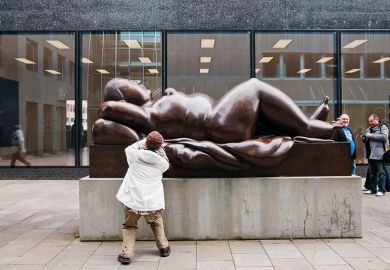The prevailing orthodoxy in contemporary anglophone political philosophy is liberalism, one central tenet of which is the view that political communities cannot be justified in limiting liberty in order to enforce private morality. Only acts, such as murder, which directly affect other people can legitimately be prohibited. In Making Men (sic) Moral, Robert George directly challenges that view.
The bulk of George's book consists of criticisms of key liberal figures. Against Ronald Dworkin, George argues that moral laws "need reflect no preference of one person (or class of persons) over another". So legislators enacting such laws do not fail to treat people equally. Against Jeremy Waldron, George contends that, while "there are often compelling reasons for tolerating certain . . . forms of immorality . . . no one has a strong moral right to commit those (acts)". George rejects as question-beggingly liberal the Rawlsian assumptions which underpin David Richards's claim that respect for autonomy requires the government to be neutral between various "ends and visions of the good". Finally, against Joseph Raz, George argues that autonomy is only valuable when the end pursued is itself desirable. Coercion which prevents people from pursuing immoral ends thus involves no undesirable violation of autonomy.
George locates his own position squarely within the natural law tradition, which he identifies as the "central tradition of western thought about morality, politics and law and their inter-relationships". In that tradition, laws should "aspire not only to help make people safe . . . but also to make them virtuous". George argues that both Aristotle and Aquinas (the most significant figures in that tradition) "fail to understand the diversity of basic forms of good and the range of valid pluralism". However, while there is no single pattern for the human good, there are still some bad ways to live a human life. The community may prevent people from living such lives.
George thus defends a weaker role for moral laws than his predecessors. He further weakens his claim when he notes the many prudential reasons why particular immoral acts should not be forcibly prevented. However, his claim that "victimless" immoralities can be criminalised without the destruction of valuable civil liberties still marks a significant departure from liberalism.
George's exposition of his opponents' positions is clear and accurate, and his criticisms are often compelling. At times, however, the argument is perhaps too abstract. Understandably, George wishes to separate his general claim that some purely self-regarding immoral acts should be prohibited from the specific claim that any particular self-regarding act actually is immoral. Without a specific example, however, it is not always clear precisely what type of legislation is under debate. George appears to have in mind cases of "sexual immorality", but an uncontroversial example of such immorality is difficult to find. His most cited cases are prostitution and pornography, but many opponents of these practices oppose them precisely because (it is argued) they are not victimless. Furthermore, even perfectionists who accept that a certain way of life is less than the best may consistently deny that people who live that life violate any moral obligation. Yet George agrees with the liberal that, unless an activity is morally prohibited (rather than merely morally sub-optimal), it should not be suppressed. If perfectionist liberals do not regard any common self-regarding activity as actually forbidden, then George's argument can have little practical effect on their position.
Timothy Mulgan teaches philosophy at the Australian National University, Canberra.
Making Men Moral:: Civil Liberties and Public Morality
Author - R. P. George
ISBN - 0 19 825424 5
Publisher - Clarendon Press, Oxford
Price - £.50
Pages - 241pp
Register to continue
Why register?
- Registration is free and only takes a moment
- Once registered, you can read 3 articles a month
- Sign up for our newsletter
Subscribe
Or subscribe for unlimited access to:
- Unlimited access to news, views, insights & reviews
- Digital editions
- Digital access to THE’s university and college rankings analysis
Already registered or a current subscriber? Login



